Protect Your Most Valuable Writing Resource: You!
May 15, 2018
Note From Rochelle
Dear Readers,
It’s my birthday today! Yipee!
In honor of my birthday, I invited some of my writing friends to offer tips on self-care for writers.
Enjoy!
Rochelle

Protect Your Most Valuable Writing Resource: You!
By Rochelle Melander
Writing requires an enormous amount of mental energy. And most of us cannot make a living by just writing. We must work a day job, take care of ourselves and our families, and squeeze in writing on evenings and weekends. With a schedule like this, it’s easy to become exhausted.
I’ve discovered that I cannot wait for the weekend or a vacation to take an energy-restoring break. I need to build them into my daily schedule. For awhile, I used social media as my break. As I transitioned from one project to another, I’d check in to Facebook or Twitter and scroll. As you can imagine, this didn’t restore me.
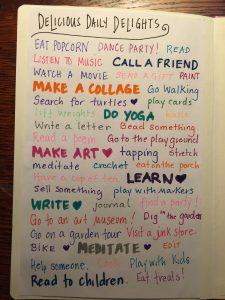 Years ago, I wrote a book on Self Care with my husband, Harold Eppley: The Spiritual Leader’s Guide to Self Care. In it, we encouraged readers to create a list of “Delicious Daily Delights,” fun and free activities that restore their energy. Now when I need a break, I turn to my list and choose an activity from there. Taking a walk around the block or checking on the bird feeder usually helps me press the “reset” button. When I return to work, I feel refreshed and ready to write.
Years ago, I wrote a book on Self Care with my husband, Harold Eppley: The Spiritual Leader’s Guide to Self Care. In it, we encouraged readers to create a list of “Delicious Daily Delights,” fun and free activities that restore their energy. Now when I need a break, I turn to my list and choose an activity from there. Taking a walk around the block or checking on the bird feeder usually helps me press the “reset” button. When I return to work, I feel refreshed and ready to write.
For today’s tip, I asked four of my writing friends how they take care of themselves as writers. Here’s what they had to say.
Tending the Garden
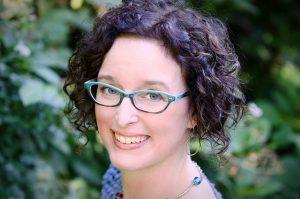 By Lisa Alber, author of Path Into Darkness
By Lisa Alber, author of Path Into Darkness
A few years ago, I bought my own, very first house. Since then, I’ve discovered that I love gardening, even weeding. I’ll be tired, and maybe even grumpy, after a long day, but somehow I find energy to putter around the garden. I lose time—get into flow—when I’m babying the lupine that attracts lupine aphids, deadheading the coreopsis, or training a fledgling clematis to climb a trellis. The act of tending the garden tends to my soul.
Novelist Alice Sebold said it best: “I like gardening—it’s a place where I find  myself when I need to lose myself.” (Also, did you know soil contains a microbe called Mycobacterium vaccae, a natural antidepressant? So I’m not nuts for loving to sink my hands into the dirt!)
myself when I need to lose myself.” (Also, did you know soil contains a microbe called Mycobacterium vaccae, a natural antidepressant? So I’m not nuts for loving to sink my hands into the dirt!)
Connect with the Greater Mystery
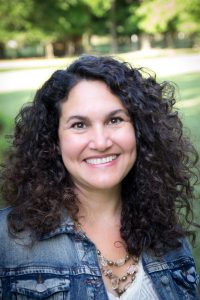 By Julie Cantrell, author of Perennials
By Julie Cantrell, author of Perennials
After publishing four novels in five years, I’ve learned that writing can wreck a body. It’s crucial for me to step away from the office a few times a day. I do this by working in the flower gardens, taking a long walk, or going on a brisk hike. Depending on my location, I try to reach a lake, stream, or riverbed. There’s nothing more soothing for me than water and trees. Add animals to the mix, and I’m one happy girl. These outdoor activities not only keep me physically active, they are mentally and spiritually beneficial as well. When I’m creating a new story, it’s easy to get lost in my own headspace. Nature reminds me to zoom out and reconnect with the greater mystery. What a beautiful universe!
Go Fund Me
 By Jane Kelley, author of The Escapades of Clint McCool
By Jane Kelley, author of The Escapades of Clint McCool
Writing is all about my ego. Let me clarify. I don’t write to stoke my ego. But after it has been depleted by envy, self-criticism, and self-doubt, then I’m not sitting at my computer—I’m a puddle on the floor. If only those days could coincide with a contract offer, a starred review or even a nice email from a total stranger who actually read my book. They never seem to. It seems like there are more bad days than good. To solve this problem, I created a kind of Go Fund Me account. I don’t ask for money. Instead I store up compliments. I bank the successes—regardless how small. I know that saying no to one more game of solitaire actually requires the same sort of discipline as publishing several books. And then, when I need to, I draw on that account. Here’s the good thing! Those kinds of rewards don’t get used up like cash. And because saving them results in more writing, they truly are the gift that keeps on giving.
Keep Moving Forward
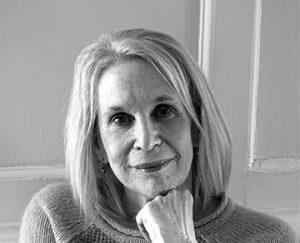 By Sue William Silverman, author of The Pat Boone Fan Club: My Life as a White Anglo-Saxon Jew
By Sue William Silverman, author of The Pat Boone Fan Club: My Life as a White Anglo-Saxon Jew
As important as it is for us to write our narratives, our memoirs, it’s equally important to take care of ourselves when we do so—when we enter into dark material. Here are some things I tell both myself and my students. On a difficult day, I tell myself I only have to write one page, or even just a paragraph. Or, on a really stressful day, only a sentence. The important thing is to keep moving forward, a word at a time. I also remind myself that I already survived the scary event from the past. For example, my first memoir is about the incestuous relationship I had with my father. So, when writing, I told myself that what my father did to me happened years ago, in the past. I survived that. Now I’m an adult, a writer, and I see my writing as an opportunity: Now I get to set my story down on paper. By doing so, I organize my life, make sense of what happened to me in the past—something I’ve never had the courage to do before. I also know, now that I’ve written three memoirs, that I feel better after completing a book. It’s like I’ve taken those scary memories out of me. I’ve set them outside of me, so to speak. The writing process itself, when all is said and done, lightens the burden of the past. I really do feel emotionally lighter after I finish any given piece of writing. One last thing: Know that you’re not alone. When you feel as if you’re sitting alone in a dark place, you aren’t. Remember the thousands of #MeToo comments. We’re really all sitting together working on our stories.
About the Authors
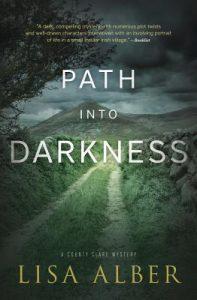 Lisa Alber is the author of the County Clare mysteries, which have been described as atmospheric, complex, and with enough twists and turns to keep you guessing. Her latest novel, Path Into Darkness, was a finalist for the Spotted Owl Award. She’s currently at work on a standalone novel that she’s calling “California gothic.” When not writing, you’ll most likely find her gardening, drinking wine with friends, and dog walking. You can find her online at www.lisaalber.com.
Lisa Alber is the author of the County Clare mysteries, which have been described as atmospheric, complex, and with enough twists and turns to keep you guessing. Her latest novel, Path Into Darkness, was a finalist for the Spotted Owl Award. She’s currently at work on a standalone novel that she’s calling “California gothic.” When not writing, you’ll most likely find her gardening, drinking wine with friends, and dog walking. You can find her online at www.lisaalber.com.
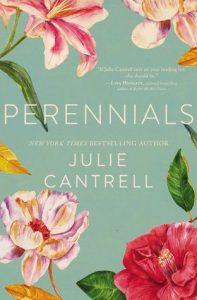 Julie Cantrell is an award-winning New York Times and USA TODAY bestselling novelist, editor, and speaker. A finalist for the 2017 Mississippi Institute of Arts and Letters Award, Cantrell has served as editor-in-chief of the Southern Literary Review and is a recipient of the Mississippi Arts Commission Literary Fellowship. Learn more at www.juliecantrell.com and www.bluesparked.com
Julie Cantrell is an award-winning New York Times and USA TODAY bestselling novelist, editor, and speaker. A finalist for the 2017 Mississippi Institute of Arts and Letters Award, Cantrell has served as editor-in-chief of the Southern Literary Review and is a recipient of the Mississippi Arts Commission Literary Fellowship. Learn more at www.juliecantrell.com and www.bluesparked.com
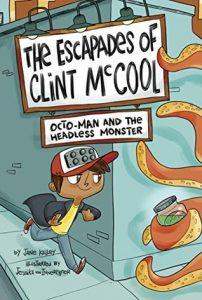 Jane Kelley grew up by a woods in Mequon, Wisconsin, a perfect place for her imagination to roam. After graduating from Northwestern University, she performed street theater throughout the Midwest. She moved to Brooklyn, New York, with her husband, and was inspired by their daughter to write for kids. In 2010, she published her first middle grade novel, Nature Girl. She was the 2013 Thurber House Children’s Writer in Residence. She has written many more novels, including The Desperate Adventures of Zeno and Alya, which was honored by the CCBC in 2014. Her most recent work is the chapter book series, The Escapades of Clint McCool.
Jane Kelley grew up by a woods in Mequon, Wisconsin, a perfect place for her imagination to roam. After graduating from Northwestern University, she performed street theater throughout the Midwest. She moved to Brooklyn, New York, with her husband, and was inspired by their daughter to write for kids. In 2010, she published her first middle grade novel, Nature Girl. She was the 2013 Thurber House Children’s Writer in Residence. She has written many more novels, including The Desperate Adventures of Zeno and Alya, which was honored by the CCBC in 2014. Her most recent work is the chapter book series, The Escapades of Clint McCool.
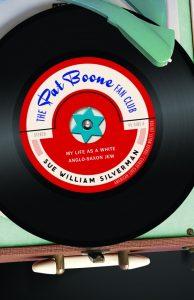 Sue William Silverman is the author of Because I Remember Terror, Father, I Remember You, which won the Association of Writers and Writing Programs award in creative nonfiction. Another memoir, Love Sick: One Woman’s Journey through Sexual Addiction, was also made into a Lifetime TV movie. The Pat Boone Fan Club: My Life as a White Anglo-Saxon Jew, a memoir-in-essays, was a finalist in the IndieFab Book of the Year Award, and her craft book is Fearless Confessions: A Writer’s Guide to Memoir. To watch a video of Sue’s talk, “#MeToo: Intimate Politics and Confessional Writing as Resistance,” which she presented at the low-residency MFA program at Vermont College of Fine Arts, where she teaches, please visit www.SueWilliamSilverman.com.
Sue William Silverman is the author of Because I Remember Terror, Father, I Remember You, which won the Association of Writers and Writing Programs award in creative nonfiction. Another memoir, Love Sick: One Woman’s Journey through Sexual Addiction, was also made into a Lifetime TV movie. The Pat Boone Fan Club: My Life as a White Anglo-Saxon Jew, a memoir-in-essays, was a finalist in the IndieFab Book of the Year Award, and her craft book is Fearless Confessions: A Writer’s Guide to Memoir. To watch a video of Sue’s talk, “#MeToo: Intimate Politics and Confessional Writing as Resistance,” which she presented at the low-residency MFA program at Vermont College of Fine Arts, where she teaches, please visit www.SueWilliamSilverman.com.








